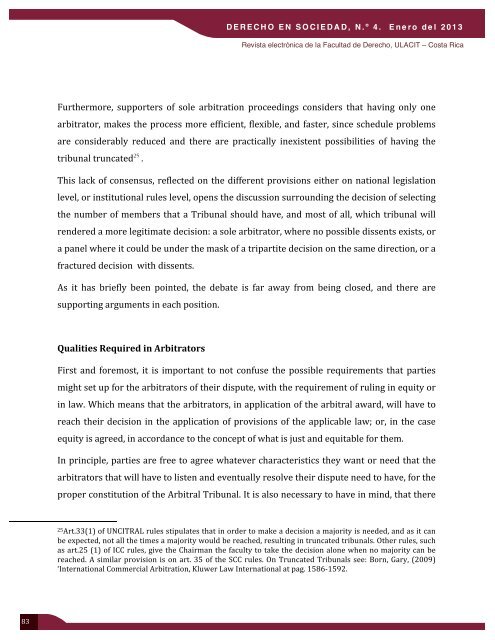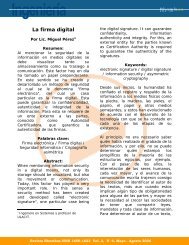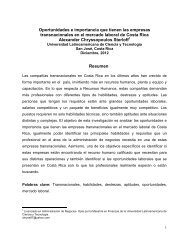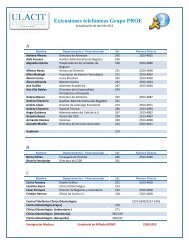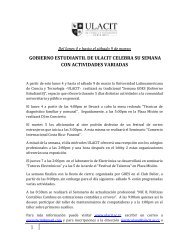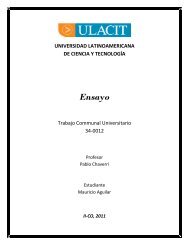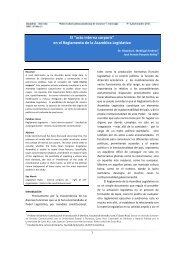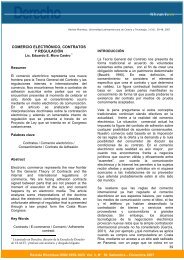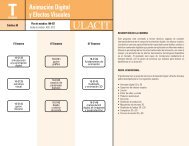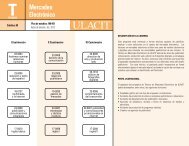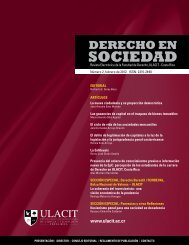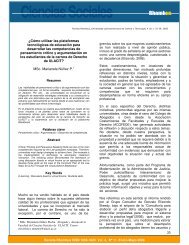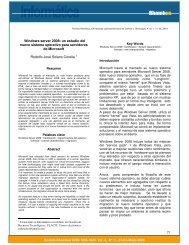IV Edición Revista Derecho en Sociedad - Ulacit
IV Edición Revista Derecho en Sociedad - Ulacit
IV Edición Revista Derecho en Sociedad - Ulacit
Create successful ePaper yourself
Turn your PDF publications into a flip-book with our unique Google optimized e-Paper software.
DERECHO EN SOCIEDAD, N. º 4 . Enero del 2013<br />
<strong>Revista</strong> electrónica de la Facultad de <strong>Derecho</strong>, ULACIT – Costa Rica<br />
Furthermore, supporters of sole arbitration proceedings considers that having only one <br />
arbitrator, makes the process more effici<strong>en</strong>t, flexible, and faster, since schedule problems <br />
are considerably reduced and there are practically inexist<strong>en</strong>t possibilities of having the <br />
tribunal truncated 25 . <br />
This lack of cons<strong>en</strong>sus, reflected on the differ<strong>en</strong>t provisions either on national legislation <br />
level, or institutional rules level, op<strong>en</strong>s the discussion surrounding the decision of selecting <br />
the number of members that a Tribunal should have, and most of all, which tribunal will <br />
r<strong>en</strong>dered a more legitimate decision: a sole arbitrator, where no possible diss<strong>en</strong>ts exists, or <br />
a panel where it could be under the mask of a tripartite decision on the same direction, or a <br />
fractured decision with diss<strong>en</strong>ts. <br />
As it has briefly be<strong>en</strong> pointed, the debate is far away from being closed, and there are <br />
supporting argum<strong>en</strong>ts in each position. <br />
Qualities Required in Arbitrators <br />
First and foremost, it is important to not confuse the possible requirem<strong>en</strong>ts that parties <br />
might set up for the arbitrators of their dispute, with the requirem<strong>en</strong>t of ruling in equity or <br />
in law. Which means that the arbitrators, in application of the arbitral award, will have to <br />
reach their decision in the application of provisions of the applicable law; or, in the case <br />
equity is agreed, in accordance to the concept of what is just and equitable for them. <br />
In principle, parties are free to agree whatever characteristics they want or need that the <br />
arbitrators that will have to list<strong>en</strong> and ev<strong>en</strong>tually resolve their dispute need to have, for the <br />
proper constitution of the Arbitral Tribunal. It is also necessary to have in mind, that there <br />
25Art.33(1) of UNCITRAL rules stipulates that in order to make a decision a majority is needed, and as it can <br />
be expected, not all the times a majority would be reached, resulting in truncated tribunals. Other rules, such <br />
as art.25 (1) of ICC rules, give the Chairman the faculty to take the decision alone wh<strong>en</strong> no majority can be <br />
reached. A similar provision is on art. 35 of the SCC rules. On Truncated Tribunals see: Born, Gary, (2009) <br />
‘International Commercial Arbitration, Kluwer Law International at pag. 1586-‐1592. <br />
83


